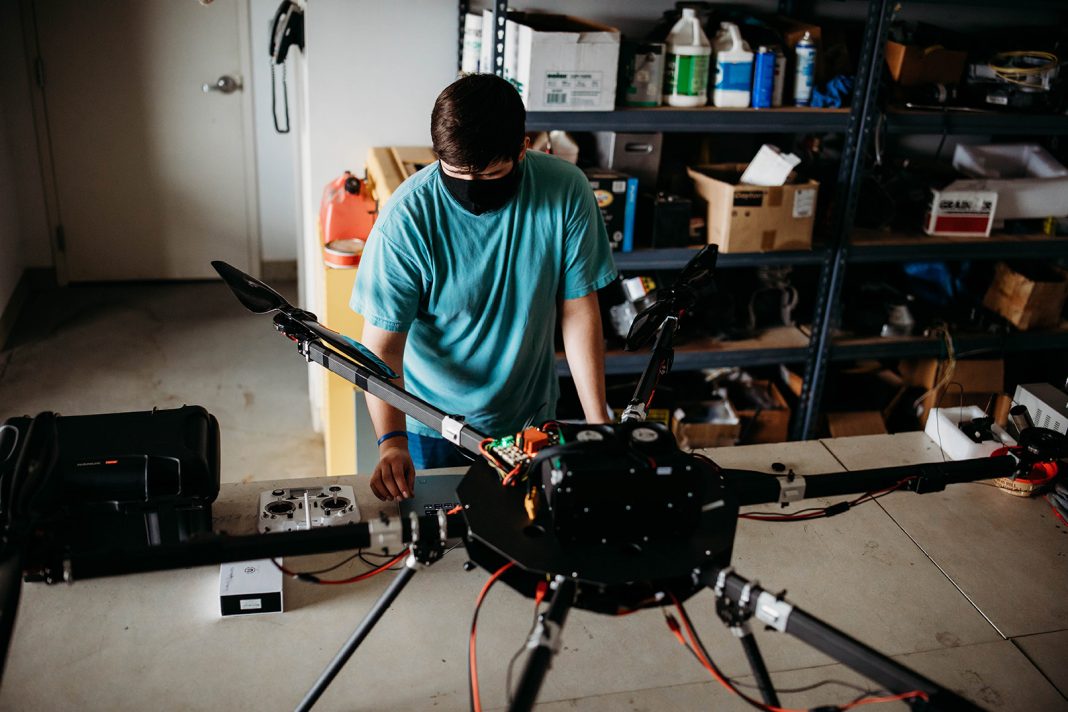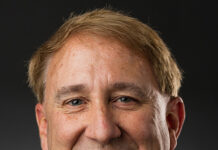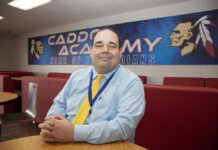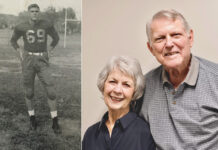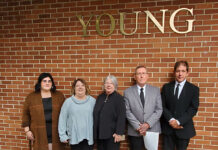That daunting challenge is exactly what one ATU professor is doing as part of his research on clean combustion and sustainable energy.
Dr. Seyed Ehsan Hosseini, assistant professor of mechanical engineering, joined ATU in 2017 and over the past five years has been researching clean energy.
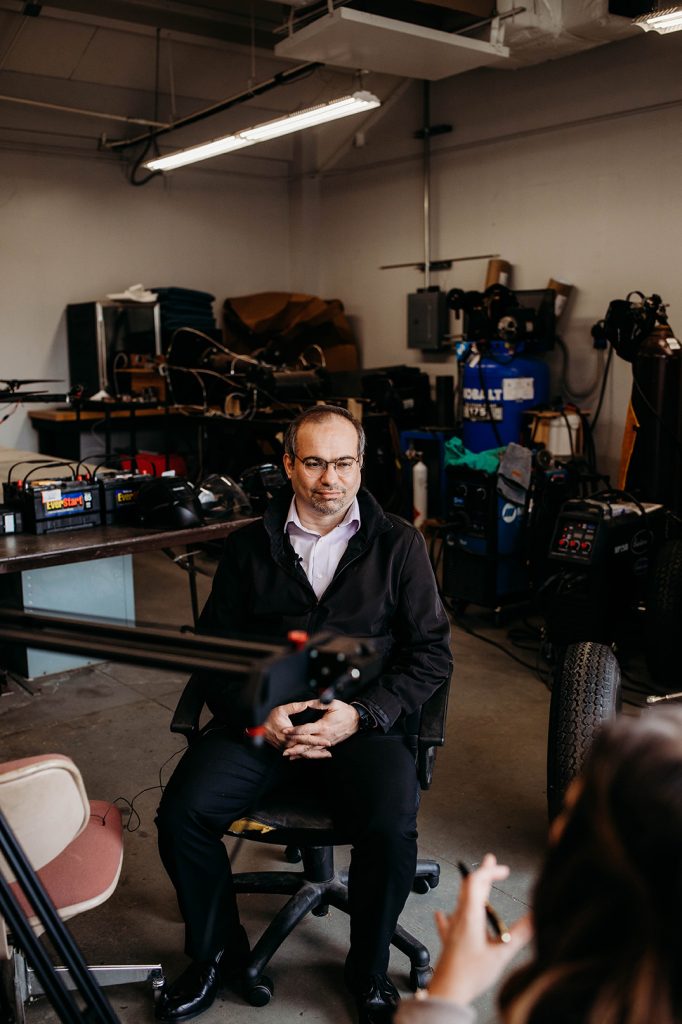
It was an overcast and unseasonably warm February afternoon when Dr. Hosseini opened the garage doors to his lab to show how he is using it to help students learn and make an impact on energy.
“I established a lab named combustion and sustainable energy laboratory – or ComSel. We work on different projects.”
Some of the projects researched in the ComSel lab include a flameless combustible engine and a hydrogen fuel cell.
While the projects are different – they all share one key goal – creating sustainability through clean fuels that don’t create hazardous emissions or waste.
“I really like energy, especially clean energy, and I strongly believe that hydrogen is the fuel of the future, and based on that, we focus more on clean fuels, especially on hydrogen,” said Dr. Hosseini.
Hosseini hopes that students in his lab will be able to apply their lessons to a wide variety of other technologies.
He added, “We are building a drone that runs on hydrogen. There are so many applications of drones today. For example, we can use it as an ambulance, in firefighting, or to check on roads or railroads. Similarly, we have built a car that runs on hydrogen. There are also numerous uses for transportation that can support hydrogen. These skills and the familiarity with hydrogen will help students in a variety of engineering paths.”
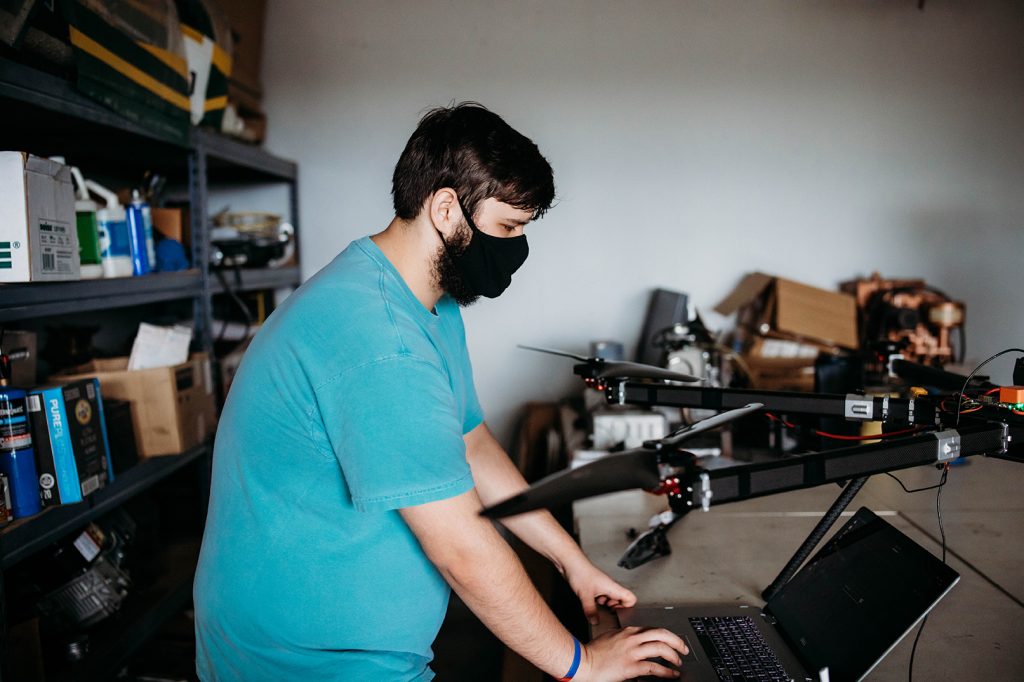
While Hosseini’s research continues, national players are taking note. He has received expanded research funding from the Arkansas Department of Transportation, Arkansas Space Grant Consortium, and from NASA.
The grant funding means that Dr. Hosseini can undertake researching additional projects and involve more ATU students in the research. Something he says plays a critical part in their engineering education.
He explained, “In this lab we focus more on experimental study and experimental investigation, so many students come here and investigate different things. As part of that, they sometimes face struggles when things do not perform as expected. Those challenges are, I think, very helpful for students. It makes them ready for industry.”
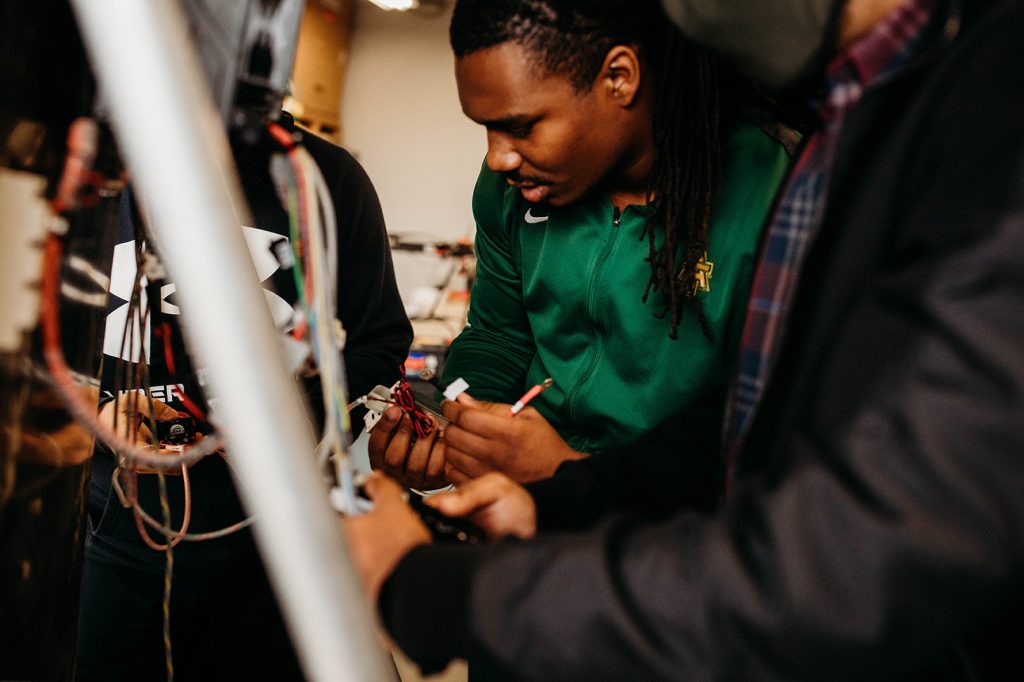
Several former members of the ComSel research team have gone on to engineering positions at national engineering firms, something Dr. Hosseini said would not be possible without the College of Engineering and Applied Sciences.
He added, “I really like my colleagues in the college. They are very supportive of me and this project. I think that makes a major difference in its success.”
Later this spring, Dr. Hosseini hopes his drone will take flight for the first time. And the learnings from that flight can help continue improving his understanding of hydrogen as a fuel cell.
After all, making the state, region, and world a better place is no small task. But it happens time and time again in the research labs across campus when curious professors and students collaborate – one project at a time.

